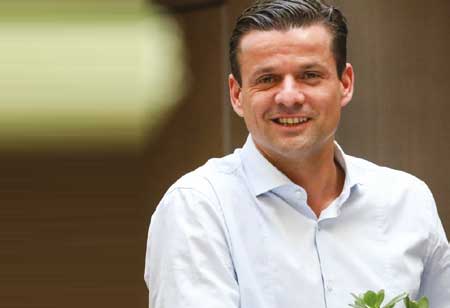Especially in Germany the more than 522,000 kilometres of pipes of natural gas supply lines are decisive for the success of energy transition. Since they are the basis for the introduction to a real hydrogen economy.
For to switch of gas supply lines to hydrogen there are still some obstacles to overcome. But one thing is certain. The energy transition happens locally and only with acceptance of the people and in the communes.
In the next months we will, based on concrete projects, elaborate what the new regulatory framework conditions imply when implemented.
Hence, we put into operation a test section on site on our company grounds in the commune Linnich. The approximately 130 meters of natural gas pipeline were completely switched to hydrogen. To achieve this, we had built up a stock of hydrogen tanks and from there the fuel is now fed in into the supply line. Since then, one company building and one store house are provided with heat by the means of hydrogen instead of natural gas. Beforehand an external technical testing of the existing network had to be conducted and furthermore the heating unit had to be changed to a hydrogen compatible one.
The addition of hydrogen into the German building energy law, is necessary for the energy transition
To begin with we will install ten fuel cell appliances with end consumers to see how they develop regarding costs and technical-wise.
This technology has crucial advantages, such as running better on hydrogen than on gas and also due to producing comparatively high amounts of electricity next to heat.
In the context of power generation, we will publish a comprehensive feasibility study for a park with renewable energy sources and electrolysers combined. Because the power generation on site completes the still necessary import and accomplishes a certain degree of self-sufficiency – an increasingly more important virtue. Also, it keeps creation of value in the region.
Furthermore, we will show which ameliorations are necessary to promote the hydrogen runup via heating. The addition of hydrogen into the German building energy law, is necessary for the energy transition, at least in the supply area of Gelsenwasser AG. Especially since half of the German population heats with gas, the Ruhr region is no exception.
The ambition of the coalition agreement of the German government to only install heating technology which uses at least 65% renewable energy leaves many customers with few options regarding decarbonisation in the current situation. By far most existing buildings need to be renovated extensively which many people do not want to or cannot accomplish right now in time of crises. Also, the power grid would have to be developed before heat pumps enter into service on a large scale. But even when the willingness for investment is there, the shortage of skilled workers hits, so the realisation of comprehensive renovations is put on hold.
Even more difficult than the short-term solvable technological challenges, are the manifold economic and regulatory hindrances. Among these are uncertainties regarding costs and available quantities but most importantly the missing framework on the EU-level. Politics should put this topic into motion and should authorise green hydrogen, at least as an alternative, and should also act foresightful.


